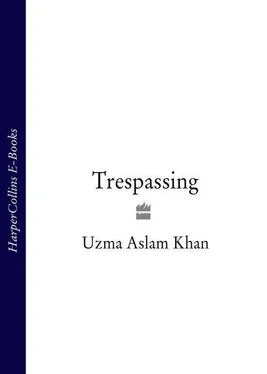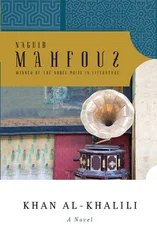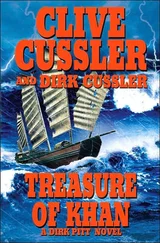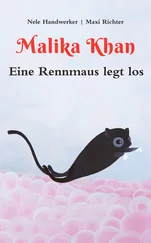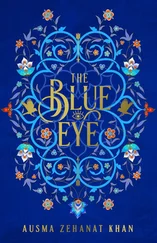There was a general murmur of consent, in which Daanish’s phoopa remained aloof. After a pause, he looked up. ‘It’s the Punjabis who are being made to pay. We’re going to be driven out. I’m thinking of taking my family back to Lahore.’
‘Rubbish,’ said another. ‘It’s the Muhajirs. How many of us are in prominent positions? The quota system must end.’
‘You all control Karachi!’ came the bellowing response.
The chacha was quick to intercede. ‘One thing we can all agree on: those Sindhi separatists are imbeciles.’ Everyone nodded. The chacha continued, ‘Now, what is the point of getting into this discussion here? My poor brother would not have wanted it.’ He padded toward the center of the room, where sweets and savories lay in large clay platters. He began passing them around. Next he poured out warm Pepsi, explaining, ‘Without water for tea, it’s the best we can do.’ Daanish’s stomach turned; it was barely ten in the morning.
His chacha turned to him again. ‘Today, it’s Daanish who will talk!’
Just a hop across the ocean, thought Daanish.
‘You’ll be a better mold of me,’ the doctor had said. The test had begun.
‘But what do you want to know?’ Daanish asked.
‘All that you’ve seen these three years!’ they replied.
He shrugged. ‘In many ways things are really different, but in others, they’re not.’
‘Tell us what’s different,’ said his phoopa. ‘We don’t care about the rest.’
‘Yes,’ said another man Daanish did not recognize. ‘We don’t want same same.’
‘Well,’ Daanish shifted. ‘It’s hard to explain.’
The men waited.
‘Here we have many restrictions but few rules, there it’s the opposite. There are few restrictions but many rules.’
The men exchanged glances. It was a poor beginning. Before he could start again someone asked, ‘Are there plenty of jobs available?’
‘Well,’ Daanish cleared his throat. ‘Actually, since the Gulf War there’s been a bit of a recession.’
The room was silent and the silence grew. Someone shook his head, ‘That war was a crime.’
Everyone nodded and a general moroseness took over. His chacha said, ‘What did those poor Iraqis ever do to them? I tell you, oil is a curse. Look at Iran. Look at Libya.’
Another nodded, ‘And look at the Saudis. Look how low they stoop.’
Daanish’s phoopa scowled, ‘Are you insulting the holy land?’
‘No,’ he replied, ‘I’m insulting the beggars who live in it.’
The phoopa declared, ‘They are our brothers.’
‘They are closer brothers of the Iraqis they let the Americans bomb.’
‘Urdu speaker,’ he retorted.
Someone began to recount how he took a different route to work every day for fear of being kidnapped. ‘The situation has gotten so bad,’ he said emphatically.
‘But there have been fewer kidnappings since the army operation,’ Daanish’s phoopa insisted.
‘There’s going to be a civil war!’ announced another unknown.
‘There’s going to be nothing besides more rumor and your hysteria!’
Daanish’s chacha again began serving sweets.
Daanish looked around in despair. He must quickly tell the men of his other, better life. He’d have to reconstruct it the way he’d tried to reconstruct this one for an exotica-starved Becky. He’d failed her; he was probably going to fail his uncles too.
While he wondered what to say, the dispute continued. For some reason, a man was thumping his chest and booming, ‘I am a thinker.’
‘Ask those that built this country!’ his opponent snapped. ‘We are the ones who really toil for Pakistan!’
‘Please, please,’ Daanish’s chacha sighed. ‘Think of my brother.’
A taut silence again descended. More Pepsi was served. More eyes turned desperately to the ceiling fan. Not a thread of an air current blew past them. The room began to smell of feet, armpits, fermenting sugar.
Then, again, ‘Someone needs to topple this government.’
‘In our country,’ said an elderly man thus far silent, ‘Prime Ministers do nothing but play musical chairs.’
‘Han, han. As soon as the people stop cheering, another one sits down!’
There was laughter, and jokes as to which one of the two still circulating had the bigger bottom.
The old man tugged his long white beard and declared, ‘Definitely he does, but she has two. Three if you count her husband’s favorite horse!’
Applause. The air lightened. Perhaps the pressure was off Daanish now. But no, when the laughter subsided, his chacha hooked him. ‘It doesn’t happen there, does it? There, the President always completes his term.’
There was a general chorus of, ‘There, of course!’
Daanish breathed deeply. He must contribute positively this time. ‘Another great thing is that there, people stand in lines.’
‘There, of course!’
He was getting in the spirit: ‘The bijly seldom goes.’
All eyes gazed beckoningly at the stubborn ceiling fan. ‘There, of course!’
Daanish shut his eyes. ‘The air is clean and crisp. In the winter, the snow gives gently under your boots, in autumn the colors are like the softest firelight, and in spring …’
He was back in the sunken garden. He could smell the dew as he lay on the grass. Pollen dusted the air. He wasn’t even sure what he said next, just that everyone agreed, and that another presence had crept beside him. It had eyes like his, a plump midriff, and legs strong and lean. It listened, transfixed, as Daanish confessed to missing his walks in the cedar forest. So it went with him, laughing in a wonderful, grizzly way, happy to be out in the world instead of locked in the inward, tail-biting frenzy of the mourners. It said, ‘My son, you will be a better mold of me.’
And then the room fell silent. Slowly, the men began reading again. Daanish realized he was scrunched in his chacha’s embrace and that his face was wet.
JANUARY 1991
When the war broke, television showed planes dropping missiles with absolute precision. At the same time, the print media disclosed that the Pentagon had rules for war coverage. In his journal, Daanish insisted these rules amounted to deleting the war entirely. Absolutely no gore was shown. There were no wounded soldiers on either side, no schools in flame, no detonated sewage systems, no Iraqi civilians — the American public would not see even one, dead, dying or alive. There were no war hospitals, no interviews with patients receiving any medication, no broken oil pipelines, no blown-up dams inundating thousands of square miles. None of that happened. The war was surgical and pure. There was no suffering. And Wayne continued deleting Daanish’s journal entries.
In the TV lounge of Daanish’s dorm, only a handful of students followed even the sterilized news. One day he looked inside it on his way to Fully Food. The lounge was dark and warm with plush pink sofas. Pizzas speckled the carpet. Coke stained it. There was a rustling as fingers probed paper bags for popcorn. The seventy-two-inch screen featured an aerial sortie. Ready — aim — fire.The projectile cruised in a velvety sky. It could have been fired from the starship Enterprise. Any minute now, the spacecraft would save the world from ugly green aliens.
A student, donning a T-shirt that said Food Not Bombs, yawned and said he’d had enough. He then emptied his popcorn down the shirt of the woman beside him. She laughed, hollering at the missile, ‘That’s what you get for oppressing your women, suckers.’
Days later, Daanish skipped all his classes, and skipped Fully Food.
Читать дальше
Конец ознакомительного отрывка
Купить книгу
